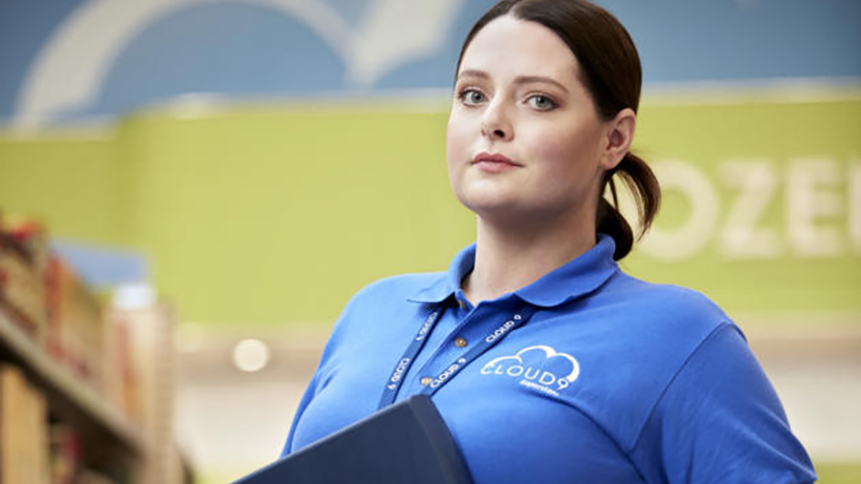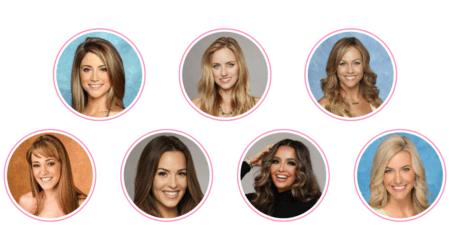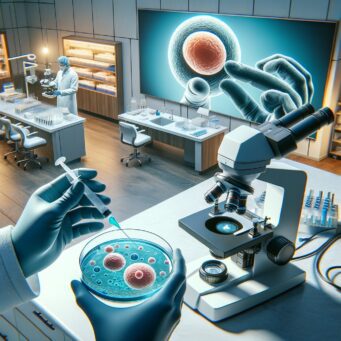
Lauren Ash has gained popularity in the last few years as one of the hilarious stars of the hit sitcom ‘Superstore’ on NBC, now in its fourth season. Her character Dina, the assistant manager at Cloud9, even had a fertility storyline last season: she acted as the surrogate for her boss and his wife.
It turns out that Ash has been dealing with her own fertility storyline behind the scenes, too. In 2016, she was diagnosed with PCOS after dealing with a multitude of symptoms.
We spoke with the Canadian born actress about her experience with this condition, which affects approximately 1-10 women of child-bearing age, and why she’s come out publicly to talk about it.
Q: When did you first learn you had a “fertility issue”/PCOS?
In 2015, I gained 30lbs in 6 months without any changes to my diet or exercise habits, my skin was exploding with hormonal acne, my mood was all over the place and I was exhausted no matter how much sleep I got. I had doctors tell me that I was in my 30s so my metabolism was just slowing down. This felt like it couldn’t possibly be true but I believed the doctor because, you know, he was a doctor. Finally my dermatologist said, “Have you been tested for PCOS?” She referred me to a great OB-GYN who gave me an internal ultrasound and discovered that I did in fact, have PCOS. It was vindicating to learn that I wasn’t crazy but the news was also overwhelming. Consequently I’ve had two surgeries since then to remove large cysts from my right ovary which had caused me chronic pain.
For a while I didn’t say anything publicly. Truthfully, I didn’t know that much about PCOS and had no idea just how many people it affects. I know it sounds funny, but I legitimately felt very alone in my diagnosis.
Q: You’re a public figure. Why did you decide to share this with fans and followers?
For a while I didn’t say anything publicly. Truthfully, I didn’t know that much about PCOS and had no idea just how many people it affects. I know it sounds funny, but I legitimately felt very alone in my diagnosis.
In July 2018, I read a tweet that claimed that “thin privilege” didn’t exist. That anyone who is overweight chooses to be that way. I saw red. I went on a twitter rant talking about how PCOS affects your metabolic system and that even with extensive diet and exercise, I was gaining weight. It’s the medications that I take now that manage to keep my weight steady. Weight loss is virtually impossible. Consequently, within hours of sending out this tweet rant, I had hundreds of responses from women all over the world saying that they, too, suffered with PCOS and were so excited that I was speaking out about it. I realized then that I had an opportunity to use my platform to not only bring awareness to this disorderm but also to connect people all over the world who deal with it every day. That’s when I started my Instagram account @PCOS_Sisterhood.
Q: What have you learned about yourself, infertility and/or PCOS through talking about it?
The most info I’ve received regarding PCOS has been from the connections I’ve made on my PCOS Sisterhood Instagram page. The internet can be a dumpster fire but it’s important to remember that it also connects us with hundreds of thousands of people all over the world going through the exact same things we are. I’ve received support, advice and recommendations from this online community that have changed my life and the way I handle this disorder for the better. It’s also how I was connected with an amazing advocacy group called PCOS Challenge.
Earlier this year I went to Washington with them and met with Senators and Congresspeople to talk about how badly PCOS needs more research funding. It affects at least 1 in 10 women and yet less than 0.1% of the National Institutes of Health’s budget is allotted to the condition. This simply needs to change.
It did feel ironic to be someone tackling a fertility storyline when I’ve been diagnosed personally with a disorder which often affects fertility. But, I think it’s also a good reminder that there isn’t one story for how a family can be created.
Q: On Superstore, you played a surrogate. Did you learn anything about surrogacy through that role? (Did you ever think the subject of fertility should be so pronounced in your life?!)
I was really proud of how Superstore handled that storyline. I think it’s something we don’t often see portrayed in film/tv and I was proud to be a part of it. I liked that we got to see Dina as a vibrant, sexual being throughout her pregnancy. Often I feel like pregnancy is portrayed in a much different way. She still felt confident and sexy and felt no shame about putting that out there.
It did feel ironic to be someone tackling a fertility storyline when I’ve been diagnosed personally with a disorder which often affects fertility. But, I think it’s also a good reminder that there isn’t one story for how a family can be created.
Q: What do you want others to know who are struggling with a diagnosis like PCOS or another fertility issue?
Be your own advocate. Don’t take no for an answer. YOU know your body better than anyone and if you don’t feel like your doctor is taking you seriously or has misdiagnosed you, seek out other doctors!
With PCOS specifically, there is such a deficit in terms of research information that often if you don’t meet all of the “criteria”, doctors don’t think you have PCOS. But the truth is that it manifests in so many different ways in so many different women that no two cases are alike. That’s why you need to listen to your body and make sure you ask for blood tests and ultrasounds if you think you may be suffering.

Listen to stories, share your own, and get feedback from the community.


















